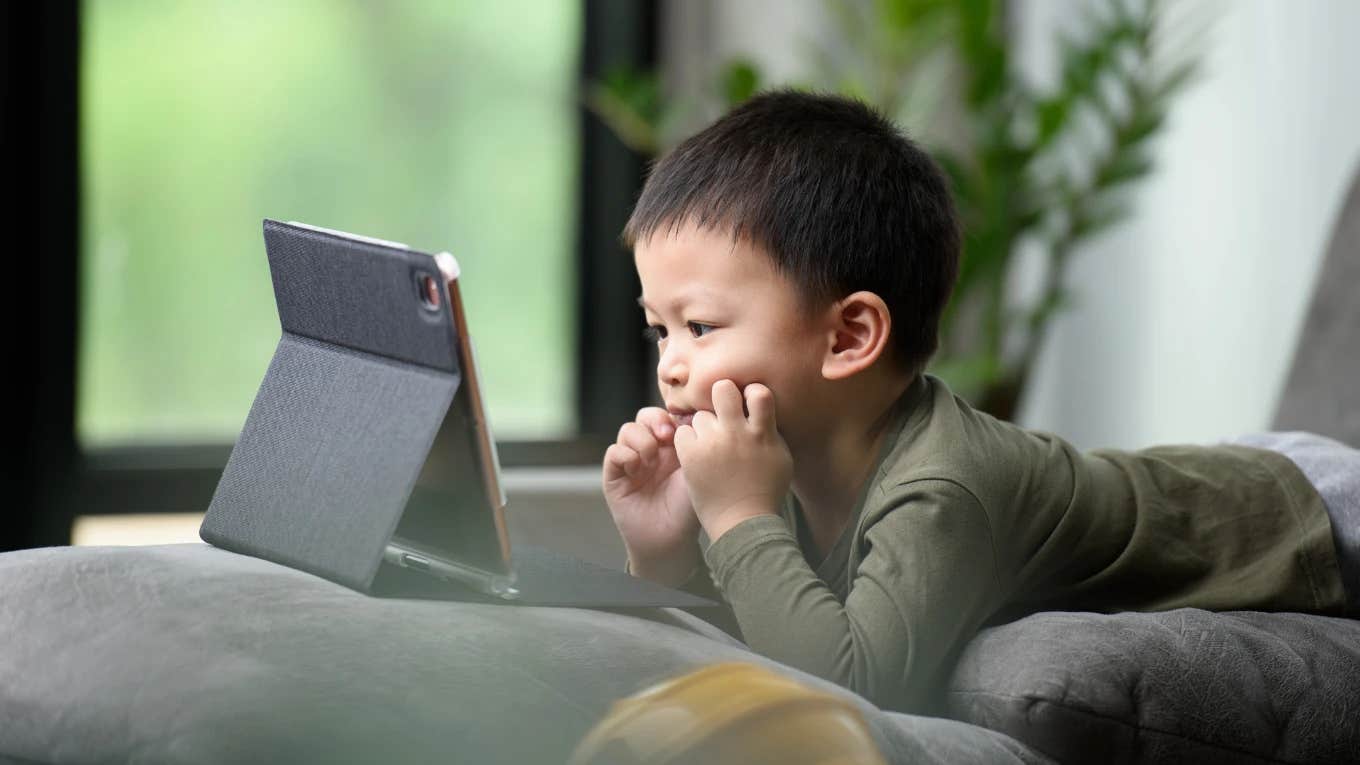Mom Started Showing Her Toddlers '90s TV Shows & Says The 'Lower Stimulation' Has Made A Major Impact On Their Behavior
Are today's children's shows overstimulating kids during screen time? These moms think so.
 Anawat_s / Getty Images / Canva Pro
Anawat_s / Getty Images / Canva Pro Screentime is one of the biggest parenting debates — and sources of worry — nowadays, as mounting evidence shows the negative impacts it can have on kids.
But after doing a bit of an experiment with their children, one pair of moms suspect that what little ones watch during screen time might have just as big an impact on kids as the amount of screen time itself.
A mom says switching her toddlers to '90s children's TV shows majorly changed their behavior.
Lauren and Sara are moms and best friends who create social media content about parenting for Instagram and TikTok, where they're known as @mamasandmesses.
Recently, they experimented by changing their kids' viewing habits, which was so successful that it inspired other moms to do the same.
They introduced their little ones to their favorite shows from their own millennial childhoods in the '90s — shows like "Arthur" and "Rolie Polie Olie" and classics like "The Berenstain Bears" and "Mister Rogers' Neighborhood." And they immediately noticed some pretty surprising changes.
They found their kids were less attached to screen time and had fewer meltdowns.
"As I started introducing some of my childhood shows to my toddler," one of the moms wrote in an Instagram post, "I noticed he enjoyed them but didn’t need them."
This will likely be music to the ears of many parents. Meltdowns when taking screens away are, of course, incredibly common, and scientists say this is in part because so much of today's content and the platforms on which kids view it are essentially designed to be addictive.
The goal is to be super stimulating, which has its benefits. But scientists have found this also lights up the parts of the brain that are involved in addiction, and since children are not yet equipped to deal with the literal psychological pain of being ripped away from their screens and content, meltdowns ensue.
But @mamasandmesses found that switching them to old-school, pre-social media content had a totally different effect. "We’d watch an episode or two, and when it was time to turn it off, he didn’t fight me or get upset," one of the moms wrote. "He just went back to playing!"
They even noticed that their children were sleeping better after switching them to '90s TV shows.
"Possibly the biggest thing I noticed was a change in his sleep!" the mom wrote of her son. "He was sleeping longer and better!" And they chalked this up to the slower pace of kids' TV shows back in the day.
"A lot of 90s childhood shows have lower stimulation than today’s shows & movies," the moms wrote, going on to say that they also "love the messages and creative exploration a lot of 90s shows teach children."
Another mom known as @mamaajoyy on YouTube was inspired by @mamasandmesses to give it a try and had similar results with her little ones.
She wrote that her kids "get hyperfocused" by today's kids' programming, "making it hard to steer them away." But after shifting to old-school stuff, "they are fine with the TV turning off after the 20-30 min episode."
She went on to say her kids were "overall less stimulated" and more interested in hands-on activities while passively watching the shows rather than staring at the screen in rapt attention.
All the moms added that their kids still love shows like "Bluey" and YouTuber Ms. Rachel — it's not all 90s, all the time. But the "positive outcomes" of introducing 90s kids TV shows have made them a mainstay.
Who knows, maybe the solution to the screen time problem is simply giving your little ones an appreciation for the classics. You get a dose of nostalgia, they sleep better, and everyone wins! (Just steer clear of "Barney & Friends" for your own sanity.)
John Sundholm is a news and entertainment writer who covers pop culture, social justice, and human interest topics.
